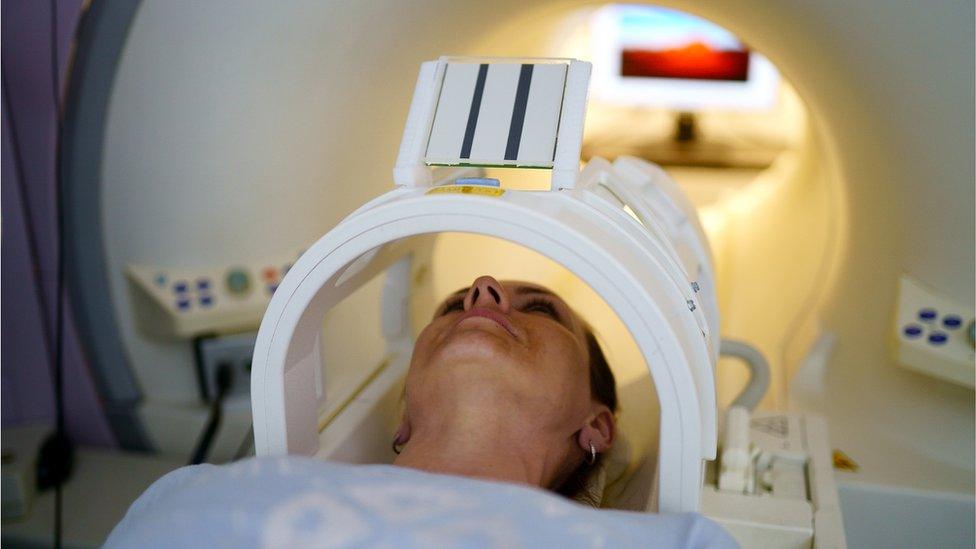Testicular cancer: Comber man recalls moment he was diagnosed aged 17
- Published
'That's when my entire world changed'
A man who felt his world had "caved in" when he was diagnosed with testicular cancer at just 17 has urged other young men to check themselves.
"It's not the end of the world," said Daniel Simpson, 35, who is originally from Comber.
"Although I felt like my world caved in at that moment in time, it's given me the tools to be a stronger person moving forward," he said.
He was speaking as Cancer Focus NI called on men to be body aware.
About 7,700 men are diagnosed with cancer every year in Northern Ireland, but the charity said that more are surviving and, over the last ten years, male cancer survival rates have gone up by 16.7%.
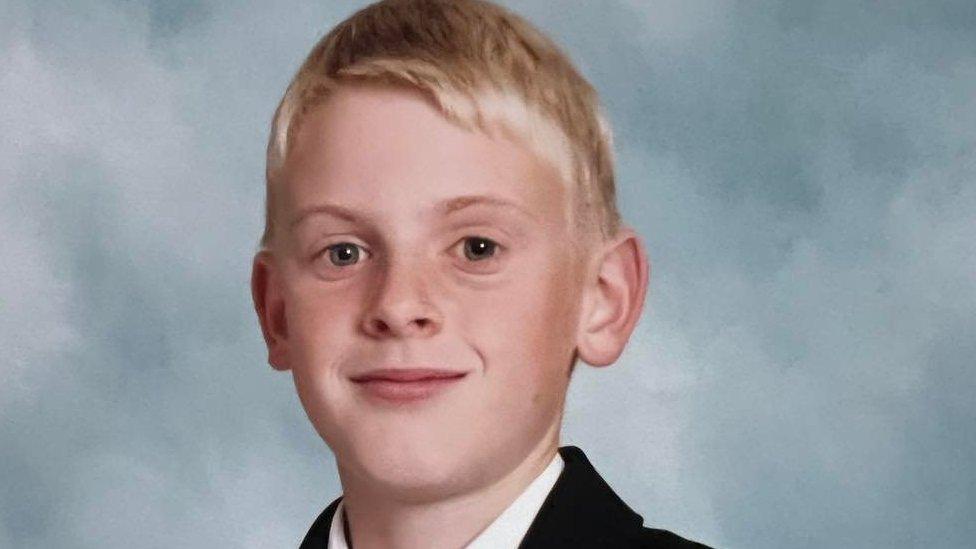
Daniel was diagnosed when he was still at school
Daniel Simpson said his story was a positive one.
"Having such a serious illness does not always mean that your world has to stop," he told BBC NI's Good Morning Ulster programme.
"Sometimes it can bring you a real perspective and focus on what's really important in life, and how you choose to live it."
When Daniel was 17 years old, he suffered severe back pain.
"I couldn't really sleep at night, I was playing football and had to stop playing. I went to the GP and they said it was a potential kidney infection," he said.
"Meanwhile, one of my testicles had massively swollen. At that age I was a little naive and embarrassed and didn't really say anything until maybe four or five months down the line.
"As soon as I showed it to the GP they said: 'You're going straight to the hospital'. And straight to hospital I went."
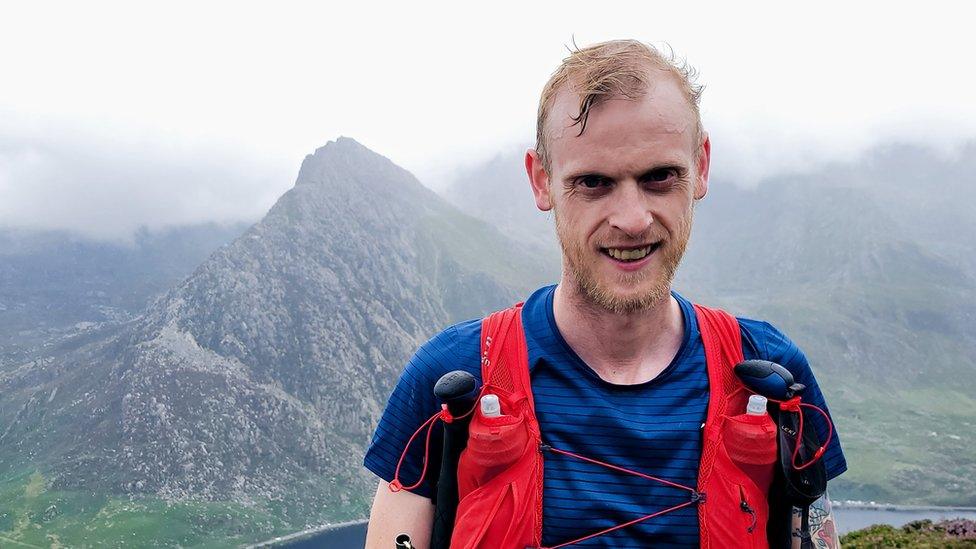
Daniel said having a serious illness does not mean your world has to stop
He had tests but when the consultant said he had a tumour, he had no idea what that meant.
"Once he hit me with the word cancer, that's when the world changed for me, it was quite a shock," he said.
"I couldn't even tell my mum and dad, my consultant had to do that."
Earlier that day, on his way to hospital, his parents passed him in the car and stopped to ask where he was going. He said he was visiting a friend's grandmother in hospital.
Looking back Daniel said that it was "crazy" how embarrassed he felt because the swelling was on his testicle.
"Can you imagine their shock half an hour later when the consultant phoned them to tell them what was going on? I still regret that to this day," he said.
"I had an operation right from the start within a few days of diagnosis. Chemotherapy started after that... with the amount of tumours because I left it so long, it spread like wildfire."
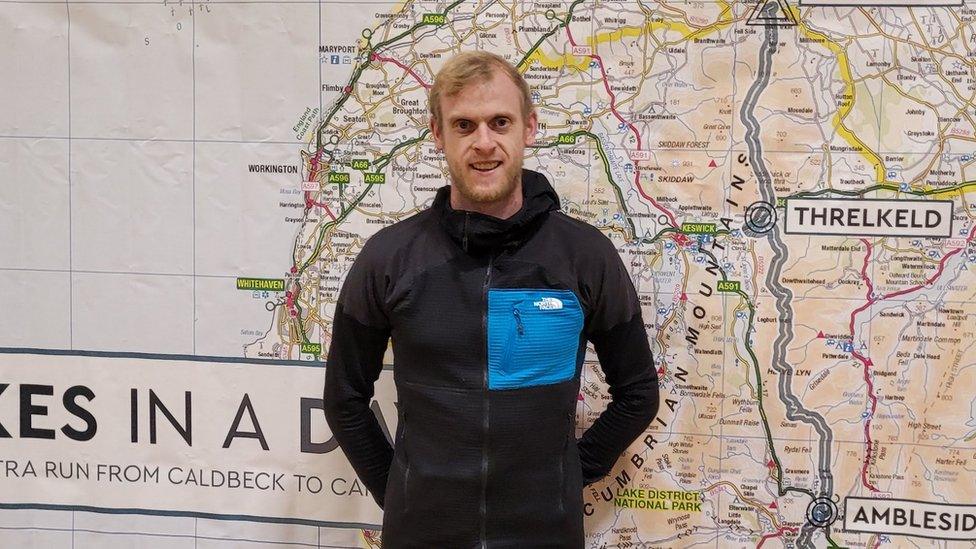
Daniel is a keen marathon runner
At one stage, after a major operation, his parents were told there was nothing more that could be done. His mother fought to bring him home to die.
"I had no idea there were palliative care people coming to the house. I only found out a couple of years ago that all this happened. My mum and dad dealt with a lot."
Looking back, Daniel said that the illness changed his life dramatically, but in a good way.
"People might find it bizarre, but it was probably the best thing that ever happened to me because at the time I was just going through the standard education and a business degree. I've no interest in business.
"I loved football and this sparked me to think what do I want to do with my life, I don't want to just pass through it.
"I started coaching. I progressed to university.
"I've been lucky enough to work in professional football for the past 10 years ... I'm currently at the Football Association in England working as a game insights analyst.
"Career wise I don't think I would ever had have the motivation or discipline to do that."
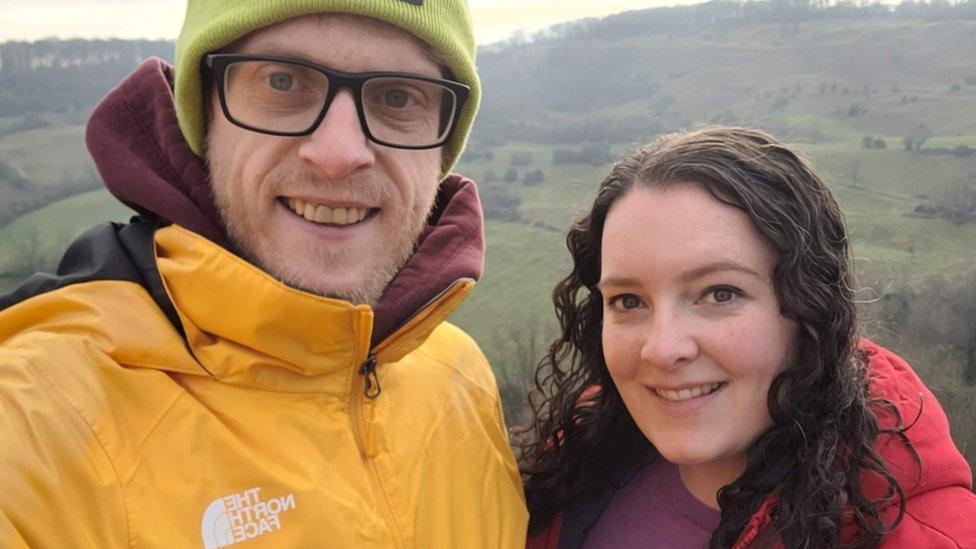
News that they were expecting a baby was a complete surprise for Daniel and Aswalia
Family wise, there was a surprise in store.
He was told that it was incredibly unlikely that he would have children. But his partner already had a child, who is a daughter to him.
Then, three years ago, the couple found out they were expecting a child together.
"I was told the chances are incredibly, incredibly slim," he said.
"Just that feeling of waking up every day a dad is incredible."
His story is positive, he insisted, and his message to others is to get checked out, even if there are no symptoms.
Anthony Stuart, Cancer Focus NI said: "By being body aware and detecting cancer at an earlier stage, there are so many more options for treatments, leading to better outcomes."
Mr Stuart said up to 40% of all cancers could be prevented with a healthier lifestyle and seeking appropriate support.
"There are some simple guidelines that everyone can follow - keep to a healthy weight, eat healthily, be active, take care in the sun, limit alcohol, don't smoke, attend cancer screenings if eligible and get unexplained changes in your body checked out by your GP."
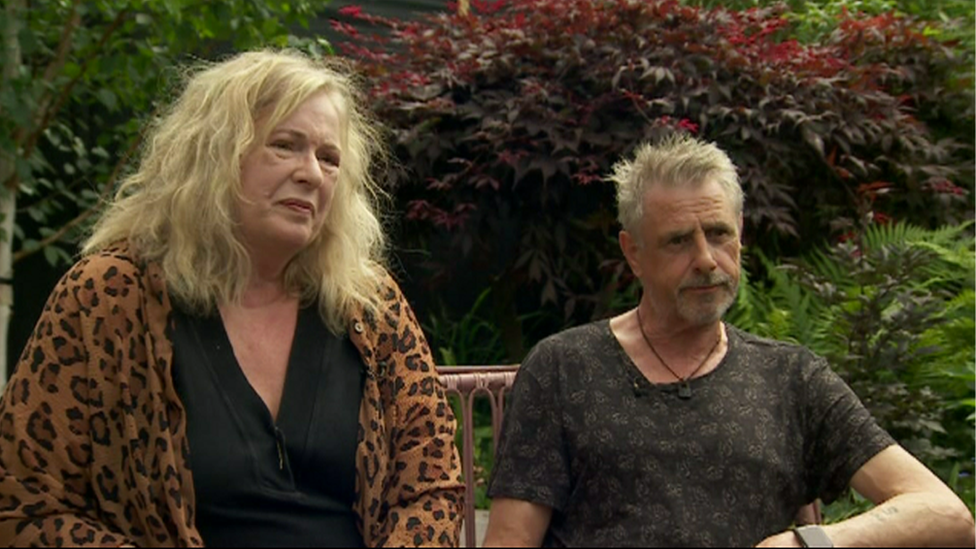
Daniel's mum Angela expressed the importance of having those conversations that may seem awkward and embarrassing
The news that Daniel had testicular cancer came as a shock to his parents Nigel and Angela Simpson
"We felt really guilty afterwards because it wasn't on our radar at all," said Mrs Simpson.
She said she believed Daniel had not told them that something was wrong because he felt "extremely embarrassed".
'Very scary times'
She and her husband were told to expect the worst by doctors and that Daniel would be on palliative care.
"It was very scary times," said Nigel. "Horrible times for Daniel, very nerve-wracking for us as well".
Angela said how important it is to have those awkward and embarrassing conversations.
"You have to have them because you could be missing something that is so important," she added.
Related topics
- Published3 January 2020

- Published10 May 2022
